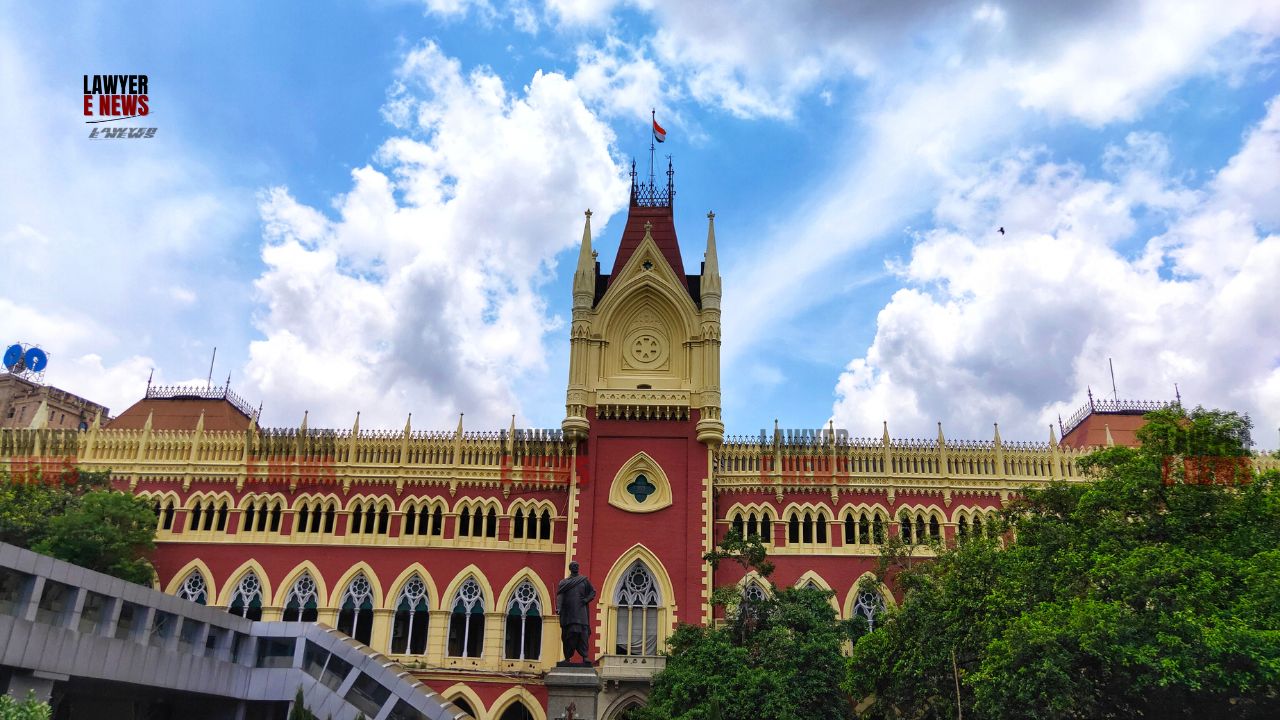-
by Admin
15 February 2026 5:35 AM



Calcutta High Court setting aside a trial court decision that had dismissed a probate application concerning the Will of Late Renuka Dutta. The Will, executed on January 16, 2003, was challenged on the grounds of alleged discrepancies in execution, including overwriting of dates and doubts about the testatrix’s mental capacity. A Division Bench comprising Justice Sabyasachi Bhattacharyya and Justice Subhendu Samanta found the trial court's findings to be perverse, holding that the Will had been validly executed in accordance with Section 63 of the Indian Succession Act, 1925, and Section 68 of the Indian Evidence Act, 1872.
The appellant, Sri Jagadindra Ganguly, sought probate of a Will executed by Renuka Dutta on January 16, 2003. The testatrix, aged 87 at the time of execution, passed away on February 1, 2007. The trial court had rejected the probate application, citing discrepancies in dates, overwriting, and doubts regarding the testatrix’s mental capacity due to her advanced age. The trial court also raised issues about the role of the executor and attesting witnesses.
The appellant argued that the Will was validly executed, duly attested by three witnesses, and notarized. It was further contended that overwriting of dates was an honest error rectified by the scribe, and that the testatrix had sound mental and physical capacity at the time of execution.
The court affirmed that the Will was executed in compliance with Section 63 of the Indian Succession Act and Section 68 of the Evidence Act. The testimony of P.W.2, an attesting witness, confirmed that the testatrix signed the Will in the presence of three witnesses, who in turn attested it in her presence. This satisfied the legal requirement for proving a Will’s execution.
The court held:
“P.W.2 duly proved the execution of the Will, stating that the testatrix signed in his presence and in the presence of other witnesses. This satisfies the statutory mandate.” [Para 12]
The trial court had raised suspicion over an overwriting in the date and a stray mention of 2005 instead of 2003 on one page of the Will. The High Court found these issues immaterial, noting that the overwriting was rectified with the scribe’s short signature, and the incorrect date was a bona fide error.
“The stray mention of 2005 on one page does not vitiate the execution of the Will, as all other dates consistently state January 16, 2003, corroborated by the notarization.” [Para 19]
The trial court had doubted the testatrix’s mental capacity due to her advanced age. The High Court rejected this presumption, emphasizing that advanced age alone does not imply incapacity. The testimony of P.W.1, the executor, along with the firm and consistent signatures of the testatrix on every page of the Will, proved her sound mental and physical health at the time of execution.
“The nature and firmness of the signature on every page reflect the testatrix’s sound mental and physical capacity at the relevant time.” [Para 27]
The trial court criticized the executor for not explicitly stating that the Will was signed in his presence. The High Court clarified that Section 68 of the Evidence Act does not require the executor to prove execution; it is sufficient if one attesting witness testifies to the Will’s execution, as was done by P.W.2 in this case.“The absence of a specific statement by the executor is irrelevant, as the law requires only one attesting witness to prove the execution of the Will.” [Para 24]
The trial court questioned why the testatrix signed at both the top-right corner of every page and at the bottom of the Will. The High Court held that these additional signatures strengthened the Will’s validity by affirming the testatrix’s intention to execute it.
“The signatures at multiple locations reaffirm the testatrix’s intention to execute the Will and comply with Section 63(b) of the Indian Succession Act.” [Para 22]
The trial court erroneously interpreted the Bengali Year 1409 mentioned in the Will as corresponding to English Year 2002. The High Court corrected this, confirming that Bengali Year 1409 corresponds to English Year 2003, aligning with the date of execution as January 16, 2003.
The High Court found the trial court’s decision to be based on extraneous considerations and devoid of legal merit. It held that the Will had been validly executed, with all statutory requirements fulfilled.
The appeal was allowed, and the trial court’s judgment was set aside.
The court granted probate of the Will dated January 16, 2003, to the appellant, with leave to approach the probate court for ministerial steps.
The court observed that the findings of the trial court were “perverse” and contrary to the evidence on record.
“The probate court relied on extraneous circumstances and arrived at perverse findings… The Will having been proved in accordance with Section 68 of the Evidence Act and Section 63 of the Indian Succession Act, the appellant is entitled to probate.” [Para 29]
Date of Decision: January 9, 2025
